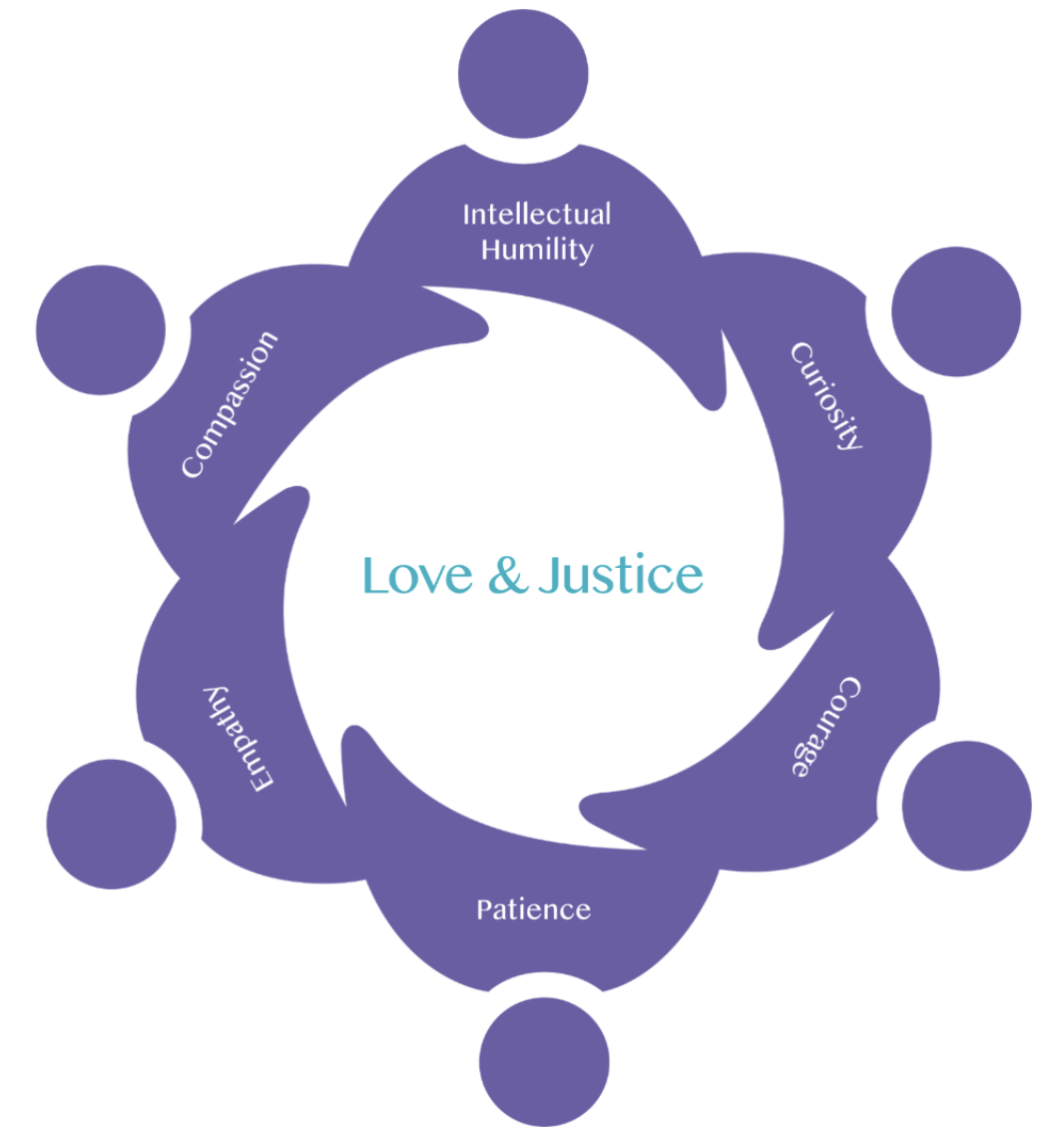Bridging and Character
Bridging practices are more than skill-building tools; they do something deeper—they help strengthen our character.
By “character,” we mean the collection of moral qualities (virtues) that guide our identity and behavior, especially in how we treat others. These virtues—such as curiosity, compassion, courage, and patience—are foundational to bridging differences. They influence not only our willingness to engage across divides, but also how constructively we do so.
For example, curiosity motivates us to learn more about someone’s story, while virtues like humility and justice help ensure that curiosity is expressed with respect. Courage gives us the fortitude to listen to someone even when their perspective is difficult to hear—anchored in a commitment to the dignity and humanity of all people.
These virtues are not fixed traits; they grow over time, shaped by our environments, our actions, daily practices, and experiences with others.
When we practice bridging differences—by leaning into discomfort, slowing down to listen, or opening ourselves to someone with different beliefs or experiences—we cultivate the very qualities that enable us to connect more deeply with people whose views or backgrounds differ from our own.
In doing so, bridging doesn’t just shift what we do, it shapes who we are. In other words, character virtues help us bridge differences, and bridging differences helps to build character virtues.
Here’s how we define these virtues in the context of bridging differences:
At the heart of bridging work are two guiding principles: Love and Justice. Together, they form an orientation that shapes both how and why we engage across lines of difference. We assess every other virtue in this framework—like curiosity, courage, or compassion—by this question: Does it contribute to a more loving and just world?
Guiding Principles
What grounds the purpose and approach of bridging work
- Love: A conscious choice to recognize the full humanity of others. It fuels our desire to connect, and to treat people with care. More than simply resolving conflict, love calls us to sustain the relationships and conditions that allow individuals and communities to thrive.
- Justice: A commitment to confronting inequity, reducing exclusion, and creating environments where everyone belongs. Anchored in the inherent value and dignity of all people, justice calls us to recognize unequal conditions and work to transform them.
Bridging Virtues
What we draw on to embody love and justice in action
- Intellectual Humility: Recognizing that our knowledge is limited and our views may be wrong—including our assumptions about others. This creates openness to learning without abandoning our core convictions.
- Curiosity: A desire to understand others and explore perspectives different from our own, guided by respect for the other person’s dignity. It involves giving genuine weight to new information and resisting defensiveness or premature judgment.
- Courage: The willingness to take values-driven risks in service of connection. This might include engaging with others when it’s hard and when discomfort, conflict, or fear might tempt us to withdraw.
- Patience: The capacity to sustain bridging over time, hold tension, tolerate discomfort, and trust that growth is possible, even without immediate resolution.
- Empathy: The deliberate—and often difficult—choice to engage emotionally with someone else’s experience, even when that experience is unfamiliar or challenging to our own worldview.
- Compassion: Sensing the suffering of others and feeling motivated to relieve it, whether by offering care and support or by standing up for them when they are harmed or excluded.

